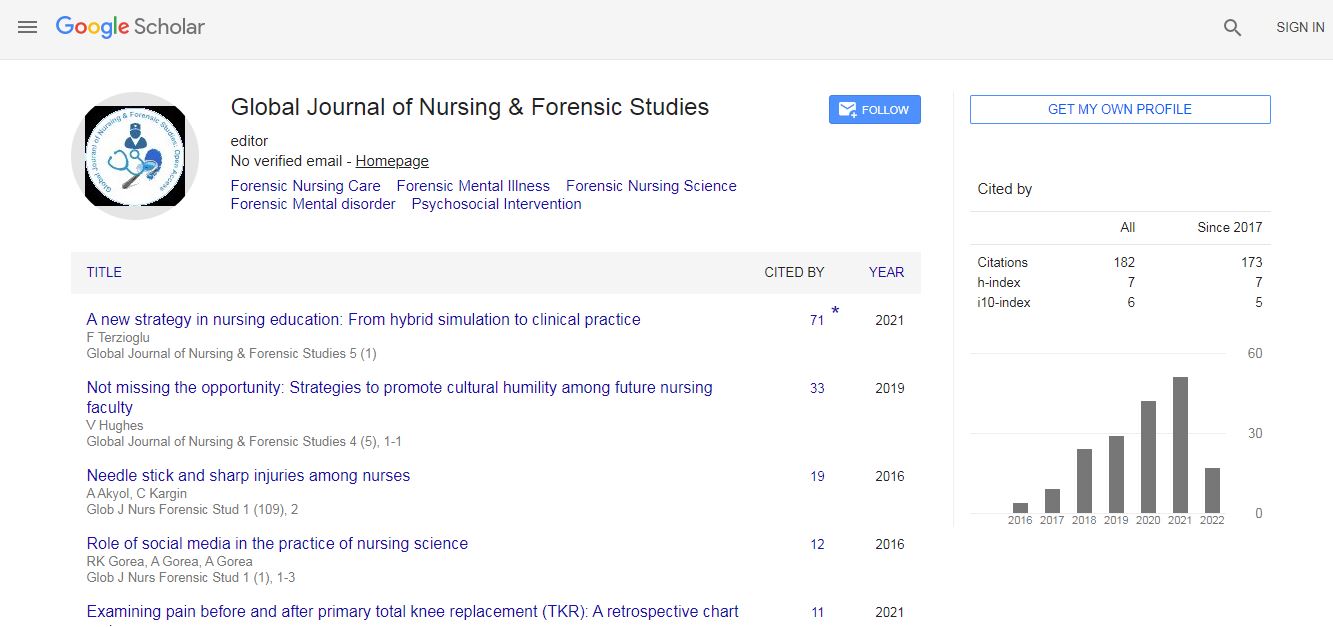Our Group organises 3000+ Global Conferenceseries Events every year across USA, Europe & Asia with support from 1000 more scientific Societies and Publishes 700+ Open Access Journals which contains over 50000 eminent personalities, reputed scientists as editorial board members.
Open Access Journals gaining more Readers and Citations
700 Journals and 15,000,000 Readers Each Journal is getting 25,000+ Readers
Google Scholar citation report
Citations : 82
Optometry: Open Access received 82 citations as per Google Scholar report
Indexed In
- Google Scholar
- RefSeek
- Hamdard University
- EBSCO A-Z
- Euro Pub
- ICMJE
Useful Links
Recommended Journals
Related Subjects
Share This Page
MicroRNA-200b expression in vitreous humor of patients with proliferative diabetic retinopathy
World Congress and Expo on Optometry & Vision Science
Amir Ramadan Gomaa, Eman Tayae Elsayed and Reham Fadl Moftah
Alexandria University, Egypt
ScientificTracks Abstracts: Optom Open Access
Abstract
Background: Proliferative Diabetic Retinopathy (PDR) is one of the leading causes of blindness. The role of microRNA- 200b (miRNA-200b) in the pathogenesis of PDR has been suggested in diabetic animal models. The aim of this study was to assess miRNA-200b expression level for the first time in the vitreous of patients with PDR and to study its relation to vascular endothelial growth factor (VEGF) as one of the pathogenic mechanisms in PDR. Methods: Quantitative reverse transcription polymerase chain reaction (qRT-PCR) was used to measure miRNA-200b expression in the vitreous samples obtained from 29 eyes with PDR and from 30 eyes with idiopathic macular hole, as a control group. In addition, enzyme linked immunosorbent assay was used to measure VEGF in these vitreous samples. Results: MicroRNA-200b expression was increased by about 5-folds in the vitreous samples from eyes with PDR compared with the controls (P=<0.001). Logistic regression analysis revealed for the first time that vitreous miRNA-200b was an independent risk factor for the development of PDR. VEGF level in the vitreous was significantly higher than controls (P=<0.001), but no significant correlation was found between miRNA-200b and VEGF. In Conclusion: MiRNA-200b and VEGF were significantly increased in the vitreous of eyes with PDR, but in a non-correlated pattern. Overexpressed miRNA-200b independently increased the risk of PDR occurrence. Further studies are needed to identify the miRNA-200b targeted genes involved in the pathogenesis of PDR and examine the potential role of miRNA-200b as a target for PDR treatment.Biography
Faculty of Ophthalmology at Alexandria University, Egypt.
Email: dramirram@yahoo.com

 Spanish
Spanish  Chinese
Chinese  Russian
Russian  German
German  French
French  Japanese
Japanese  Portuguese
Portuguese  Hindi
Hindi 